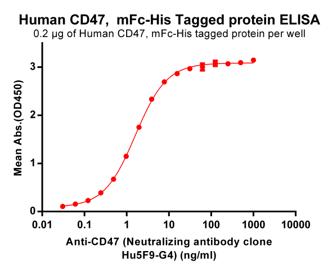Amatuximab: Exploring Mesothelin-Targeted Therapy for Cancer Research
What You Need to Know About Amatuximab
Is Amatuximab safe?
Amatuximab has shown a manageable safety profile in clinical trials, with most side effects being mild to moderate. Severe adverse reactions have been rare but should be closely monitored in clinical settings.
What is Amatuximab used for?
Amatuximab targets mesothelin, a protein overexpressed in certain cancers, including mesothelioma and ovarian cancer. It is used in research to study its therapeutic potential in treating these malignancies.
What role does Amatuximab play in mesothelioma treatment?
Amatuximab has been evaluated in mesothelioma due to its ability to bind to mesothelin, potentially disrupting tumor growth and progression. It is a focus of ongoing research for improving treatment outcomes.
1.) Understanding Amatuximab
Amatuximab is a monoclonal antibody developed to target mesothelin, a protein frequently overexpressed in cancers such as mesothelioma and ovarian cancer. Its specificity for mesothelin makes it a promising candidate for cancer research, especially in developing targeted therapies. Originally developed by Morphotek under the name MORAb-009, Amatuximab has received orphan drug designation from the FDA for treating mesothelioma.
2.) Mechanism of Action of Amatuximab
Amatuximab binds to mesothelin, inhibiting its interaction with CA-125, a process implicated in tumor growth and metastasis. This mechanism suggests potential applications in slowing cancer progression and enhancing the efficacy of other therapies, such as chemotherapy or immune checkpoint inhibitors.
3.) Clinical Applications of Amatuximab
Amatuximab has been primarily studied in mesothelioma and ovarian cancer. Clinical trials have evaluated its safety and efficacy both as a monotherapy and in combination with other treatments. Although some studies have concluded, their findings contribute to ongoing research into mesothelin-targeting therapies. Recent investigations continue to explore its role in addressing unmet needs in oncology, emphasizing the importance of understanding its mechanism and applications.
3.) Clinical Applications of Amatuximab
What is a Biosimilar?
A biosimilar is a biologic medical product highly similar to an already-approved reference product, with no clinically meaningful differences in safety, purity, or potency. Biosimilars play a crucial role in expanding research opportunities and improving access to cutting-edge biologic therapies.

| Magrolimab (Anti-CD47) Biosimilar Antibody | |
|---|---|
| Antibody Type: | Monoclonal Antibody |
| Protein: | CD47 |
| Reactivity: | Human |
How Does Amatuximab Biosimilar Support Research?
Our biosimilar product, Amatuximab Biosimilar, mirrors the properties of the original antibody, making it an invaluable tool for preclinical studies and drug development. Researchers can use this biosimilar to explore novel combinations, optimize therapeutic approaches, and study the effects of mesothelin inhibition in various cancers.
Benefits of Using Amatuximab Biosimilar
Consistency: Provides a reliable model for studying mesothelin-targeted therapies.Cost-Effectiveness: Offers a more accessible alternative for research purposes.
Flexibility: Supports various applications, including drug screening and mechanism-of-action studies.
Research Use Only Disclaimer:
Our Magrolimab (Anti-CD47) Biosimilar Antibody is intended exclusively for research use and is not approved for clinical or therapeutic applications.
Discover Our Biosimilar Range
At Assay Genie, we specialize in providing high-quality biosimilars for research use! Check out our full biosimilar range to learn more.

Wrote by Shanza Riaz
Recent Posts
-
Tigatuzumab Biosimilar: Harnessing DR5 for Targeted Cancer Therapy
Tigatuzumab is a monoclonal antibody targeting death receptor 5 (DR5), a member of the …17th Dec 2025 -
Alemtuzumab Biosimilar: Advancing CD52-Targeted Therapy
Alemtuzumab is a monoclonal antibody targeting CD52, a glycoprotein highly expressed on …17th Dec 2025 -
Enavatuzumab Biosimilar: Advancing TWEAKR-Targeted Therapy in Cancer
Enavatuzumab is a monoclonal antibody targeting TWEAK receptor (TWEAKR, also known as F …17th Dec 2025




